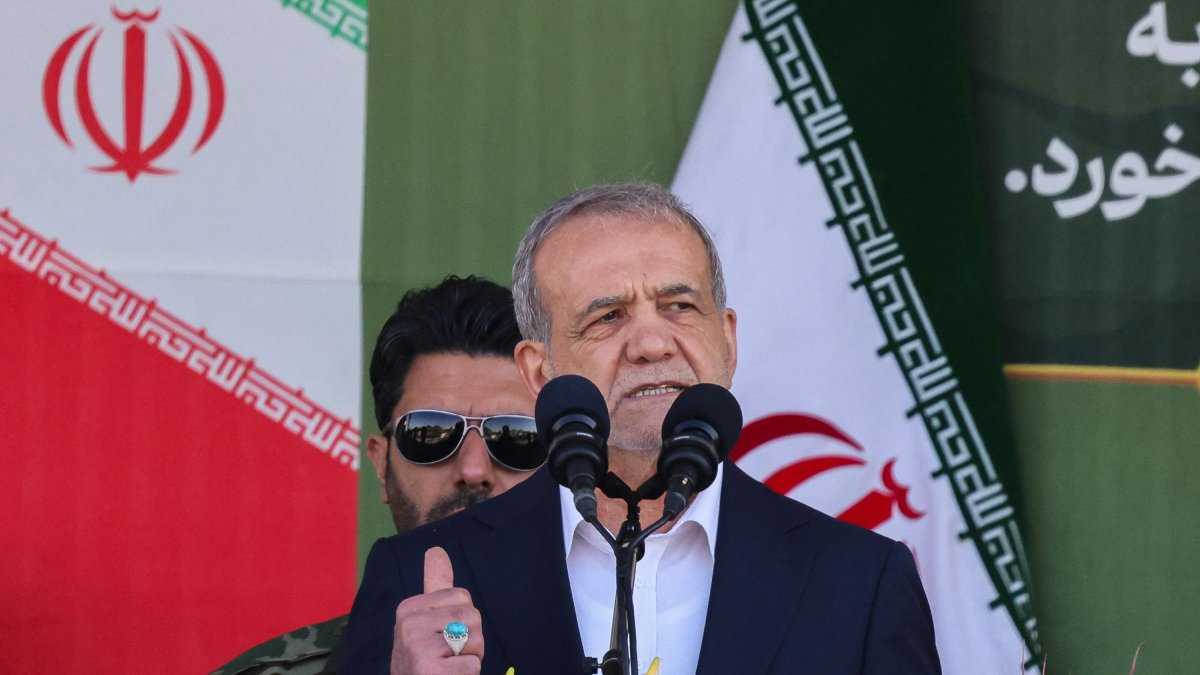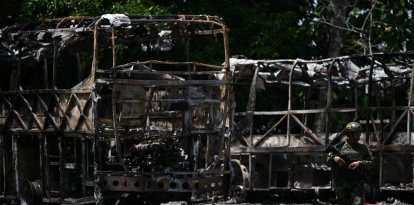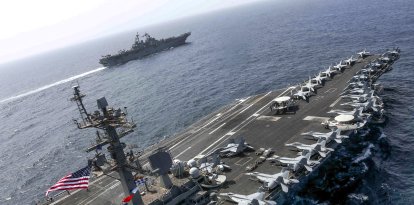Risks of retaliation against US troops increase: Iran holds Washington responsible for Israeli attack on Tehran
Iranian Defense Minister Aziz Nasirzadeh had warned that any further Israeli aggression would be met with direct attacks on nearby U.S. bases.

Iranian President Masoud Pezeshkian
Iran directly accused the United States of being "fully accountable" for strikes launched Thursday night from Israel against senior military commanders, nuclear scientists and suspected key facilities in Iran's nuclear program. The statement immediately raises fears of possible retaliation against U.S. troops deployed in the Middle East.
According to Tehran, the attacks, which left at least seven dead, including four military commanders and two scientists linked to the atomic program, were coordinated by Israel but could not have been carried out without the backing of the U.S. government. The Iranian Mission to the United Nations sent a letter to the Security Council calling the action "a serious threat to international security."
Threats against U.S. bases
Prior to the strikes, Iranian Defense Minister Aziz Nasirzadeh had warned that any further Israeli aggression would be met with direct attacks on nearby U.S. bases. "All U.S. bases are within our reach, and we will boldly target them in host countries," Nasirzadeh said, quoted by Reuters.
The United States has about 40,000 military personnel deployed in the Middle East, spread across at least 19 sites, several of them permanent, in countries such as Iraq, Kuwait, Qatar, the United Arab Emirates and Saudi Arabia. According to the Council on Foreign Relations, these strategic points are within striking distance of Iran, reinforcing the risk level in the face of a military escalation.
Pre-emptive evacuation of diplomatic personnel
In response to the deteriorating situation, the Trump administration ordered a partial evacuation of the U.S. embassy in Iraq and authorized the departure of military family members from various locations in the region. Although the exact number of U.S. citizens to be withdrawn has not been specified, President Trump himself explained that this was a precautionary measure. "I said, we got to tell them to get out because something could happen soon, and I don't want to be the one that didn't give any warning and missiles are flying into their buildings," he told the press.
What is Iran looking for?
Iran's lack of immediate military response following the Israeli bombing raises doubts about its ability - or willingness - to open a new front against Washington, despite the threats. But Taleblu recalled that Iran has already attacked U.S. bases in the past, as happened in January 2020 after the death of Gen. Qasem Soleimani.

Politics
Trump urges Iran to accept deal in the face of "more brutal planned attacks to come" by Israel
Williams Perdomo

























